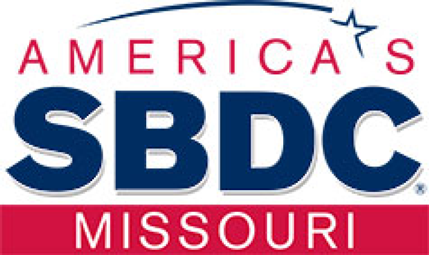After two years of planning, in April 2006, Erica Skouby said goodbye to her corporate job and started her own quilt shop. In June 2006 Nine Patch Quilt & Fabrics opened to the public, carrying cotton fabric, books, patterns, and handmaid gifts. Skouby also hosts classes on quilting and machine embroidery, completes custom sewing for customers, and donates her time to supplying pillowcases for children staying at Heartland Behavioral Center.
Before she was able to purchase a building and start selling fabric, she needed a business plan. Through a flier in the mail, she discovered the Missouri Small Business Development Center (SBDC) at Missouri Southern State University (MSSU) in Joplin. Skouby met with business counselor Lisa Robinson to develop a strong business plan that could carry her forward. She attended business seminars and worked on her own to establish a connection with a closing shop in town so that she could buy their inventory of fabric. Robinson and Skouby met often to discuss QuickBooks, an accounting software, cash flow, and finding an ideal location for the shop.
In 2006, Skouby finally obtained the perfect building for Nine Patch Quilt & Fabrics, naming it after her mom’s favorite quilt block. The first three years, she maintained a strong relationship with Robinson and the SBDC. “Erica is the prime example of someone with determination to start a business. She reached out to the SBDC to solidify her plan, create cash flow projections, and learn how to use QuickBooks. It has been a pleasure working with Erica,” Robinson said.
Once Skouby felt confident in her ability to operate her store, she fell out of contact with the SBDC. But that all changed when the COVID-19 pandemic hit. The stay-at-home order caused a lot of business owners to panic, and Skouby wanted to know what her options were in terms of loans and financial assistance. Robinson provided the most up-to-date information and walked her through the different requirements and application processes. Unfortunately, Skouby quickly learned that none of these loans would apply to her.
“I was pleased with [Robinson’s] knowledge and the information that she gave me. I was not pleased that it wasn't going to benefit my business, but that wasn’t Lisa’s fault,” Skouby explained.
She decided to keep her business open, letting just one person in the store at a time. She quickly realized how many people needed her fabrics and elastic to make face masks. A lot of people were stuck at home and bored during the lockdown, which resulted in them digging out their sewing machines for the first time in years. She also introduced curbside delivery to her customers and even offered to mail fabric to peoples’ homes.
“People were getting crafty, finishing projects that that they had started and put aside. They were cleaning out closets, and I made two or three T-shirt quilts,” Skouby said. “I was busy most of the time.”
Robinson was always there to answer the phone and give advice and relevant information. Now that business has returned to normal, Skouby is ready to learn even more from the SBDC through marketing and technology assistance.
Until then, she’s trying to keep her shop as normal as possible. She has resumed a few of her classes (with limited capacity).
“We have fun here, learning to be creative, making new friends, and knowing if you ask for help, you are going to get it,” Skouby said. “The Lord continues to bless me with friends, customers, teachers, and new ideas and challenges. While I may not be rich by the standards of others, I am richer in soul and spirit than I have ever been at any other time in my life and coming to work is always a great joy!”
